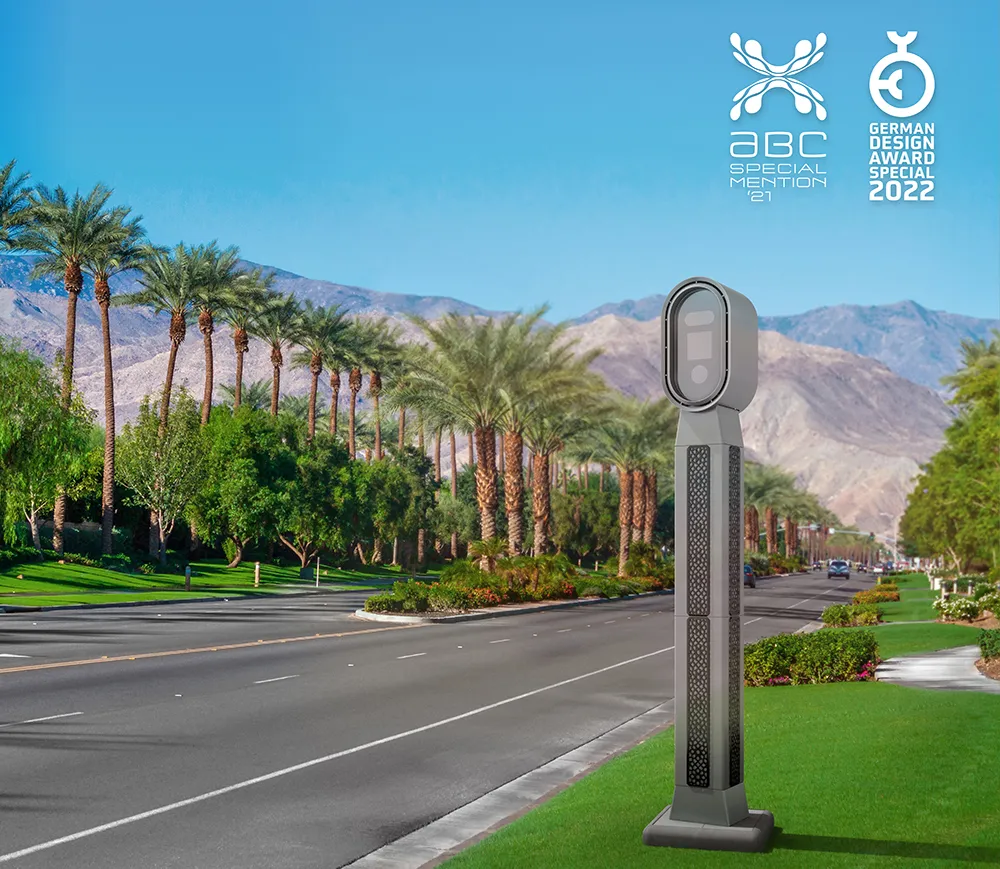
TraffiPole provides a cost-efficient and sustainable solution that fits well into modern cityscapes and enables both cost-effective operation and energy-efficient cooling of the electronic components. The upper oval segment houses the measuring system with camera and sensor for monitoring traffic violations.
TraffiPole's highly functional double-wall design enables efficient air circulation, eliminating the need for air conditioning even in very hot climates. This special design helps to significantly reduce power consumption and thus reduces CO2 emissions of up to 1.74 tons per year. In addition, TraffiPole is made entirely of recyclable aluminium and optional solar panels installed on the exterior that could contribute to additional energy savings.
Many options to suit individual needs
TraffiPole can be flexibly configured with many different options to perfectly meet individual customers’ needs. As a standard, the upper segment contains the TraffiStar SR390 traffic monitoring system to record speed and red-light violations. Other functionality such as automated number plate recognition with the Vector ANPR camera, as well as additional sensors for emission measurement are available as options.
Batteries can be inserted into the lower segment and the design elements on the outside can be exchanged for solar panels to ensure self-sufficient operation, independent of the main power supply. Alternatively, there is a range of different styles for the outside design elements, and they can even be customised according to customers’ preferences.
Design awards by German Design Council
The innovative and highly functional design of TraffiPole has already achieved great success within the design expert community: At the internationally renowned German Design Award 2022, TraffiPole was awarded a Special Mention in the Excellent Product Design/Public Design category. Back in June, TraffiPole was also awarded a Special Mention at the ABC Design Award in the "Mobility and Innovation" product category.
Jenoptik has repeatedly been a pioneer for award-winning functional designs that perfectly blend into modern cityscapes with the TraffiTower winning the iF Design Award and the redDot Design Award in 2014. Thus, Jenoptik now complements its range of design housings with TraffiPole and positions itself as a leader in the market to promote design and sustainability aspects in traffic law enforcement.
Sponsored content published in association with Jenoptik








